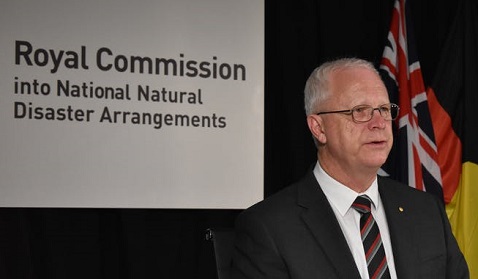Local government’s varying ability to manage natural disasters needs to be better understood by the states when delegating roles and providing support.
And while many councils share resources during natural disasters to great effect, this warrants greater state backing, the Royal Commission into National Natural Disaster Arrangements said this week.
In an interim report containing over 140 observations, the Royal Commission said more clarity on the roles and responsibilities of various levels of government would be beneficial – while also highlighting issues around betterment initiatives.
“All states have delegated to local governments significant responsibilities for aspects of managing natural disasters,” the report said.
“However, the capability and capacity of local governments to do this work appears to depend on their relative size and the resources available to them and varies across Australia.
“Notwithstanding this delegation, we would expect state governments to ensure that they retain oversight and understanding of the capabilities and capacity of local government to perform these responsibilities, and to provide support as necessary.
“Coordination and resource sharing between local governments often rely on regional arrangements and, in some cases, informal understandings. Current processes to facilitate sharing resources between local governments during natural disasters appear beneficial and warrant greater support.
“Cooperation and collaboration between Australian, state, territory and local governments is vital in national natural disasters, particularly in disasters that affect multiple communities and multiple jurisdictions concurrently.
“Clarity about the roles and responsibilities of various levels of government is therefore necessary to ensure services are delivered effectively and efficiently, and to ensure appropriate levels of accountability.”
On disaster recovery funding arrangements, the interim review said: “We have learned of a number of issues, including the scope of ‘betterment’ initiatives, the eligibility of certain public assets, and administrative requirements (such as preparation of a business case for new recovery programs).
“We welcome the current review of DRFA which, in part, seeks to identify pre-agreed recovery programs that can promote quick and effective delivery o recovery assistance to communities.”
Royal commission chairman Mark Binskin said the interim report had been produced to allow for preparations ahead of the 2020-21 bushfire season. The final report is due on October 28.



